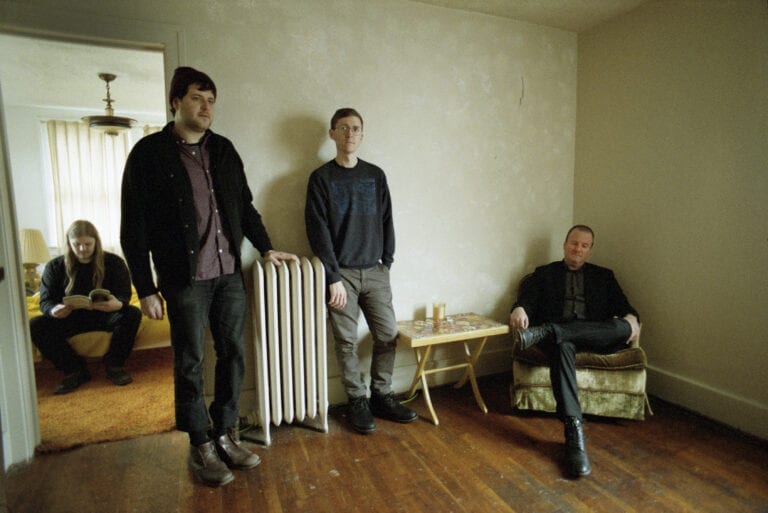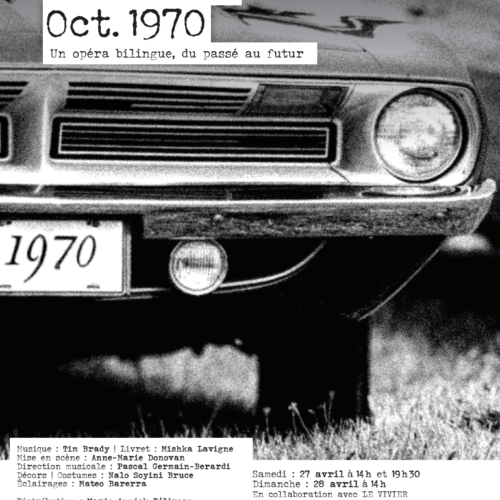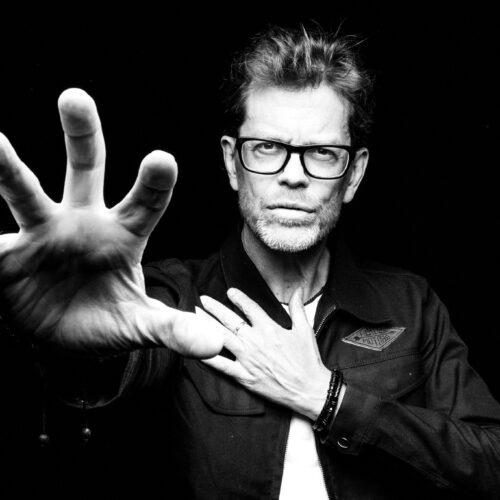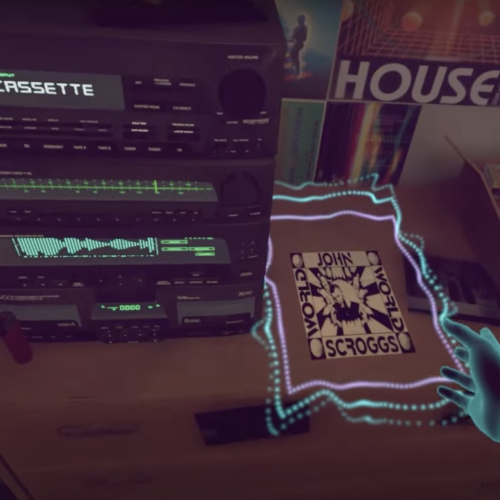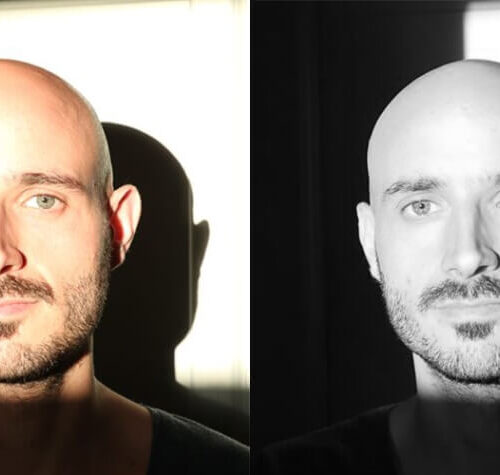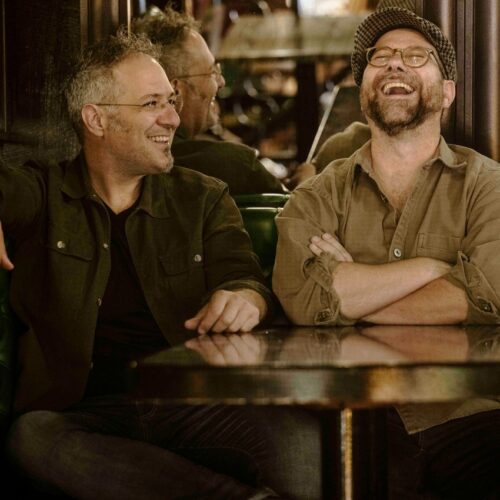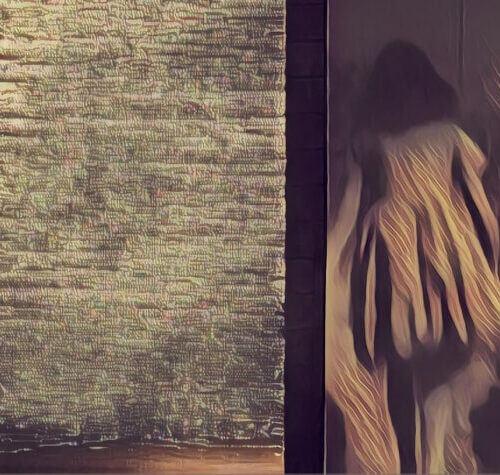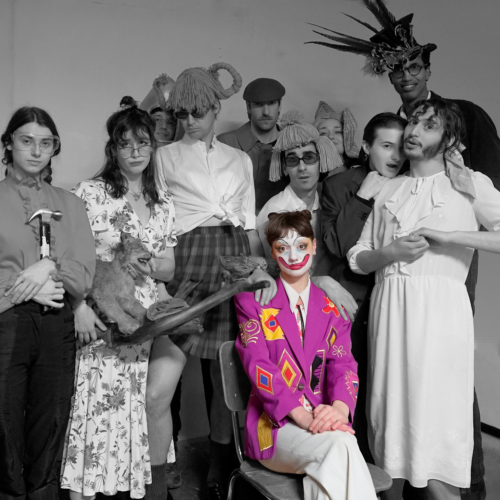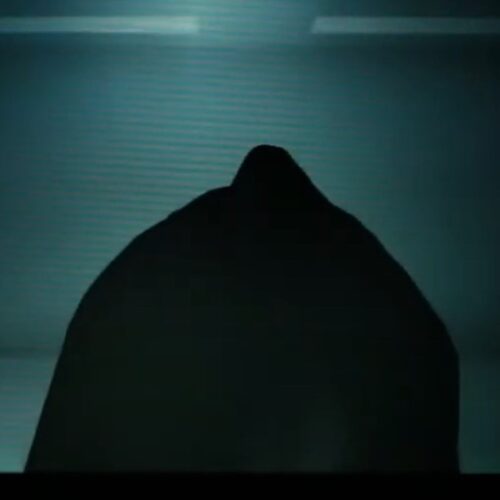Additional Information
Photo: Trevor Naud
Protomartyr, through its singer Joe Casey – one of the most brilliant lyricists of recent years, punctuating his texts with historical, literary, and mythological references – is a master in the art of depicting a dystopian world in a noisy and claustrophobic post-punk style. Since their debut on record in 2012, the band has offered us a overview of everything that’s wrong in America, from white supremacy to patriarchal hegemony, endless wars, gentrification, and the opioid epidemic… On Ultimate Success Today, written a year ago while Joe Casey was fighting a strange illness, Protomartyr seems to have foreseen the coming of the global pandemic and the scourge of police brutality that is currently raging in the land of Uncle Sam.
A logical follow-up to 2017’s Relatives In Descent, which saw Protomartyr plunge headlong into the miseries of American life, Ultimate Success Today depicts a completely nightmarish universe, punctuated by dark and visceral compositions. But this new effort is also a sequel to the 2018 EP Consolation, for which the Detroit-based band invited Kelley Deal (Breeders) on board and experimented with various instruments that hadn’t been used to on their previous recordings. For Ultimate Success Today, recorded at Dreamland Recording Studios, a 19th-century church, the band did it again, this time with several guest musicians on board. Nandi Rose (vocals), free jazz legend Jameel Moondoc (alto saxophone), Izaak Mills (bass clarinet, saxophone, flute) and Fred Lonberg-Holm (cello) appear here and there on the 10 pieces on the album. PAN M 360 reached singer Joe Casey at his home in Detroit, and he was kind enough to tell us about the genesis of this troubling fifth album, which marks a turning point in the history of Protomartyr.
PAN M 360: You’ve hinted here and there that Ultimate Success Today would be a possible noisy conclusion to a five-act play. What did you mean by that?
Joe Casey: If you’re talking about things ending, which is somehow the theme of the album because I was feeling pretty sick and kind of obsessed with mortality at the time, you really have to go to the end of the line. You can’t half-ass it. You have to really contemplate things being over… Being a band for a decade, it’s a way for us to wrap things up, not so much to completely end the band, but to move forward. So whatever our next move is, it will at least appear fresh and new. But then of course, this pandemic hits and it feels really like the end of something. So I’m gonna stop writing about things like that because they end up coming true (laughs).
PAN M 360: When you say you want to move on, it’s understandable that you want to change the themes in your songs, but does that also imply changing the sound?
JC: I don’t know about that. I just want us to be able to change what we want, as much as we want, if we continue. You have to move into a new house if you destroy your old one. It forces you to change. You know, when you release five records and people are still saying that we must be influenced by Joy Division or The Fall, you wonder when people are gonna stop saying you’re just some derivative of something else. It’s a way to force change.
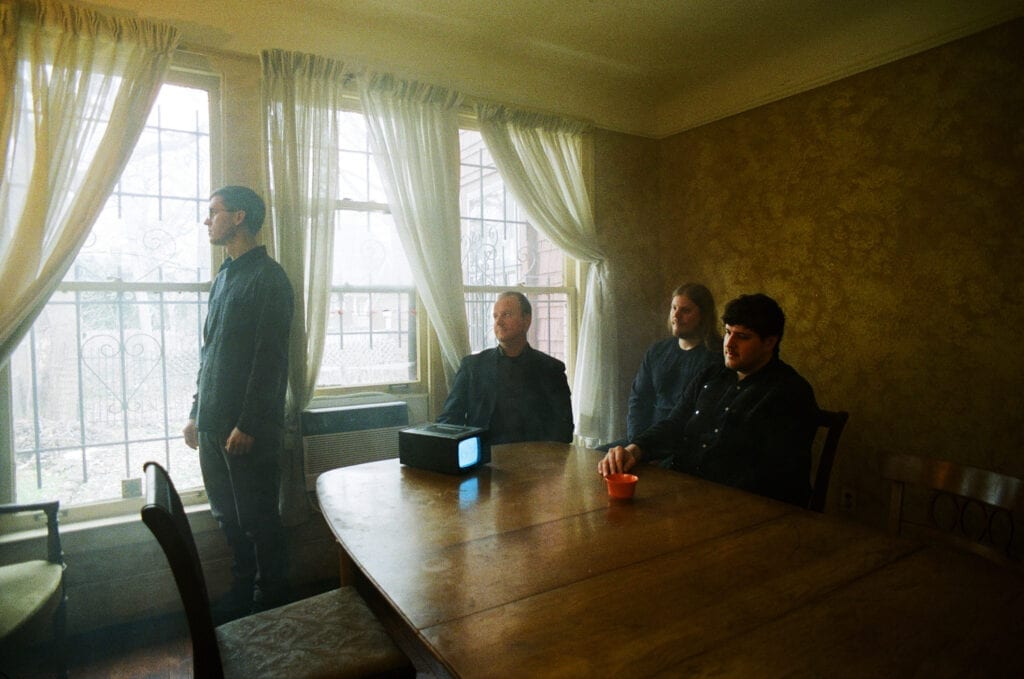
PAN M 360: But you’ve already started to make some changes with this new album, haven’t you? It’s got strings and brass… Would you say it’s your most audacious album?
JC: We always want to change, every single time. And we definitely felt that this album was an experiment, that could or could not work, by bringing in these collaborators and these extra sounds. We thought it was kind of a big departure. It’s not just Protomartyr with some strings, horns and woodwinds on it… I feel that the music the band was coming up with was, to me at least, radically different than anything we’ve done before. The way that Greg [Ahee, guitars] was writing these songs, he was approaching them from a completely different angle than what he usually does. So we’re always trying to experiment, but this time I think it’s the most pronounced.
PAN M 360: Didn’t the Consolation EP pave the way for Ultimate Success Today?
JC: The Consolation EP was really a fun collaboration with Kelley Deal that went really well. So when she brought in extra musicians for the last song and we saw the result, we thought that it sounded like Protomartyr, but different. It didn’t destroy our sound, because we didn’t want to push so far that the thing doesn’t sound like us anymore… I know that for Greg, it was a big deal, because he had worked on an album with Matthew Dear, who is more an electronic artist, and he liked his approach, and kinda wanted to bring that to the album. So in a weird way, it’s sort of like an electronic album but without any electronics on it.
PAN M 360: There are several guests on the album, how did it go with them in the studio and why did you choose them in particular?
JC: Well, we wanted to have some jazz musicians on the album, but it’s easier said than done, they don’t magically appear in the studio. So we asked around to figure out who was available. And that’s the reason we picked the studio we recorded in, because it was close to New York, where there’s a lot of jazz musicians, so it would be easier for them to come over.
I’d say that of all the collaborators, Izaak Mills, who plays the bass clarinet, the flute, and the saxophone, was the biggest contributor because he was there the longest, he was with us in the studio for a couple of days. He probably had the heaviest hand as far as collaboration goes. As for Jamil Moondoc, who is an avant-jazz legend, we couldn’t believe he was actually showing up. He came in, did his work, and left. He gave us so much to work with. Just kind of like, “here, now you figure out what to do with all this” (laughs).
Then for Fred Lonberg-Holm, who plays the cello, he is on so many different albums! His list of work is amazing. So he was in for a day, and then Nandi Rose, who is on four or five songs, she didn’t even come over. She sent all her stuff through emails. At the time, it seemed like a weird way to do things, but now that’s kind of the new normal (laughs). She gave us a lot to work with! Now that we survived the experiment, we wish we would have used more. We could have pushed this a little bit farther.
PAN M 360: How did these collaborations shape the album?
JC: A lot! Greg had the idea ahead of time, and knew that he wanted to have these collaborators fill the role that his guitar pedals or synths usually do. So we were practising the songs ahead of time, and a lot of them were skeletons where Greg would fill some parts with synths where he thought the saxophones would do something, you see. So it was a lot of guesswork. The songs were not really formulated lyrically before the studio. I had to wait until the collaborators did their part to hear what they sound like. Which I liked, because it gave me something to do in the studio while the others were taping. So this time, I was more engaged in seeing how the songs were changing. For instance, “Process By the Boys”, the addition of the clarinet really makes the song. That allowed me to sing a little bit more urgently and keep the lyrics fresh, because the song was really coming together in the studio.
PAN M 360: I heard you wrote several of the songs once you got to the studio, is that true?
JC: Yes, but this is not freestyle rapping (laughs). For instance, for the song “Worm In Heaven”, they were putting the final touches, they were adding the beautiful flute that kind of blows through it, and I’m hearing that and start to work on the lyrics for two hours. Then I go in the booth, do the editing, and figure out the form. I’d say at least three or four songs were definitely written in the booth, as they were being recorded.
PAN M 360: You worked a bit like Serge Gainsbourg when he was in Jamaica, recording his reggae album. He had practically no lyrics written once in the studio, and the next day he had them all. He spent the whole night writing them.
JC: I guess it’s the best way to do it! A song like “Tranquilizer”, where I wanted to show how it feels in your brain when you’re in terrible pain and you’re thinking about that pain, that it’s gonna kill you… you’re not thinking rationally, your words aren’t poetic! So to do that properly, you have to do it at the last minute. You can get the idea early on but it’s gotta sound almost like somebody stumbling over his words to capture it correctly. It’s a little corny, but it’s sort of like method acting, where you have to get to the role or the mold of the song to do it right.
PAN M 360: I read somewhere that you wanted to give this album a sense of urgency, a bit like the one you feel when you listen to your debut album No Passion All Technique. Do you feel as revolted as you did ten years ago?
JC: Recently, we re-released our first record [No Passion All Technique]. It has flaws all over it, but it was recorded in four hours. Twenty-two songs in four hours! What I liked while listening back to that first record is that it sounds like people that are at the end of their rope. And we were. Now we can afford to stay longer in the studio, but do you know how boring and tedious the studio can be? Like taking two or three days just to do the drum parts… It really can suck the life out of things (laughs). I wanted to bring the urgency back because I didn’t want to get complacent. I’m always surprised when I read something like, “this is Protomartyr’s darkest record”… We never set out to make dark, depressive music! Life is full of joys and full of disappointments, and for some reason, the music pulls the disappointment out of me. I guess I’m just not very funny, but there are a lot of jokes on these albums, but they kind of get lost. I read in a review that we wallow in nihilism, but I almost feel that this is like the opposite of nihilism!
